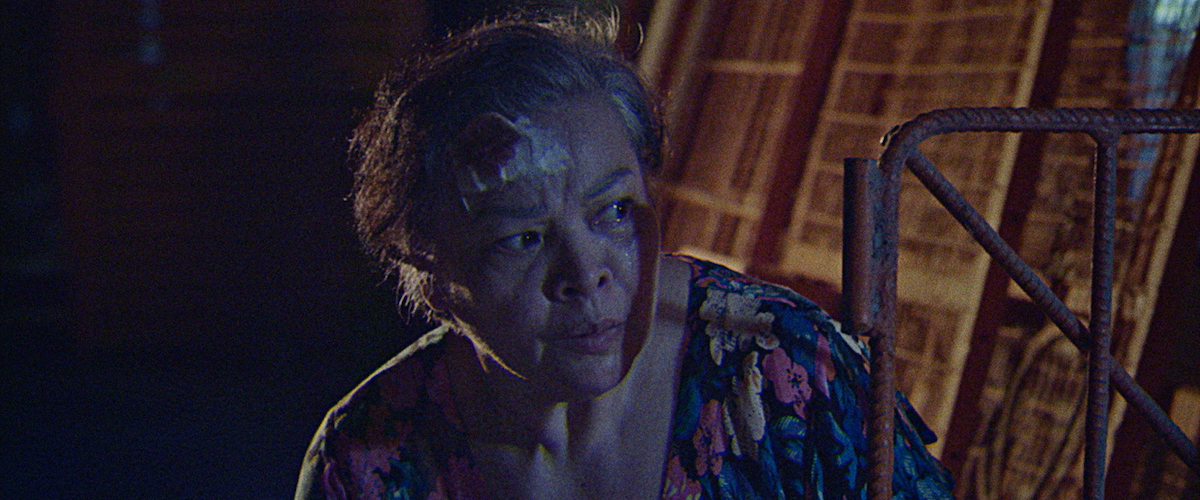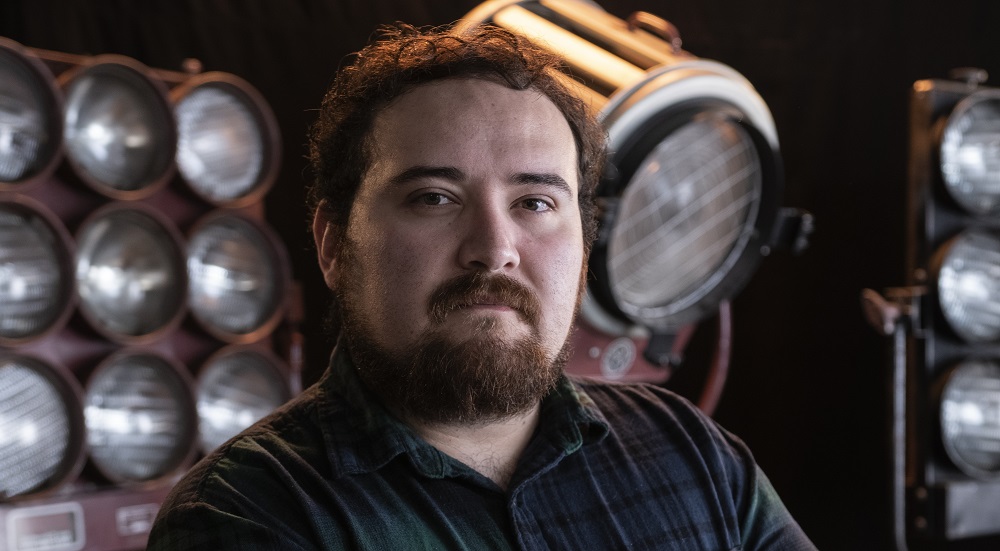A handful of filmmakers have paid tribute this year to the transporting, even life-altering potential of the movies. Yet none can dream of rivaling the endlessly imaginative delight that Filipina writer/director Martika Ramirez Escobar has confected with her Sundance-awarded debut feature "Leonor Will Never Die."
Far from her glory days as a screenwriter for violent 1980s action films, Leonor Reyes (Sheila Francisco) now mostly watches bootleg DVDs at home while her frustrated adult son Rudi (Bong Cabrera) plots his plan to migrate abroad. Crying in secret, she yearns for the creative satisfaction of turning words into larger-than-life sagas. At least there she could control the outcome of her characters' decisions with unchallenged God-like power.
Encouraged by the ghost of her late son Ronwaldo (Anthony Falcon), presented as a translucid apparition who can communicate with the living, Leonor unearths her unproduced screenplay for another gory shoot-'em-up titled "The Return of the Kwago." But when an accident involving an old television set puts the once-famous scribe in a coma, her subconscious falls inside the pages of the very story she was revisiting. With a gash on her forehead, Leonor enters the fictional realm she had first conceived decades in the past.
For each of the two planes of reality, Ramirez Escobar and her cinematographer Carlos Mauricio obey distinct sets of aesthetic rules. The aspect ratios fluctuate depending on where we find ourselves, for example. In the "Kwago" universe, the screen shrinks to 4:3 measurements, the use of zooms prevails, and the saturation of the colors convincingly replicates the look of the period as depicted on screen. Furthermore, in these sequences, the actors' voices sound ADRed, as they would in the '80s movies "Leonor" seeks to evoke.
The tone of the performances differs just as much, as the players in the "Kwago" scenes approach their parts with heightened theatricality. The protagonist in this fiction is an avatar for Leonor's son also named Ronwaldo (played by Rocky Salumbides). A working-class muscly hero, he defends the most vulnerable from corrupt politicians and ruthless mafiosos. Here Ramirez Escobar notes the taboo nature of drug use in the Philippines, and the brutal tactics the country's leaders have employed to criminalize suspected users.
Leonor's interactions with this alternative Ronwaldo reveal that she relies on storytelling to make sense of the insurmountable loss of both a loved one and her beloved profession. Trapped inside this limbo while her body lies in a hospital bed, she clings to her former life behind a typewriter. As her spirit roams Ronwaldo's high-octane ordeal or sneaks into a room during an intimate scene, Leonor's hands move spontaneously as if she were still desperately pressing on keys to rewrite the plot. For the heroine, the bombastic fights and overly dramatic lines provide an escape where the good guys often emerge victorious, where there's little ambiguity, and where she doesn't have to face her grieving process.
Francisco's muted turn as Leonor communicates a profound sadness—because the artform she adored took her son from her—without overt explanations but via the awe-struck or tearful facial expressions she runs through while witnessing her screenplay come to life in front of her eyes. By inserting her in "The Return of the Kwago," the director allows her to once again be in charge, dictate others' destinies, and perhaps change hers.
Ramirez Escobar's kooky brand of fantastical whimsy, however, isn't reserved for Leonor's filmic afterlife. The more the dual story progresses, the more we realize that what we have understood to be the real world still functions under the rules of movie magic. As Rudi decides to chase after his mother's disembodied conscience, the layers of both planes of existence begin to overlap in both hilarious and affecting ways. Cinema, as the director portrays it, serves as a vessel for life itself to be questioned and examined. Even tales marked by surreal characteristics can still hold plenty of truth about the human condition.
Unexpected in the most marvelous of manners, "Leonor Will Never Die" is reminiscent of the waking dream qualities of Apichatpong Weerasethakul's oeuvre, Spike Jonze's "Eternal Sunshine of a Spotless Mind," and the Japanese horror-comedy "One Cut of the Dead." With its low-fi pleasures of see-through ghosts and TV screens as portals, the film reaffirms how ingenious the medium can be in the grasp of the right artist. From one segment to the next, the mechanics of this adventure repeatedly astound us.
Near this wildly original movie's conclusion, Ramirez Escobar expands its meta attributes even further, once and for all blurring the lines between make-believe and the making of it behind the scenes. Not only does the audacious director feature a surprisingly joyful musical number, but by not having a conventional conclusion she demonstrates that what cinema immortalizes can never be killed. Through her movies, Leonor is truly made eternal.
Now playing in theaters.




















